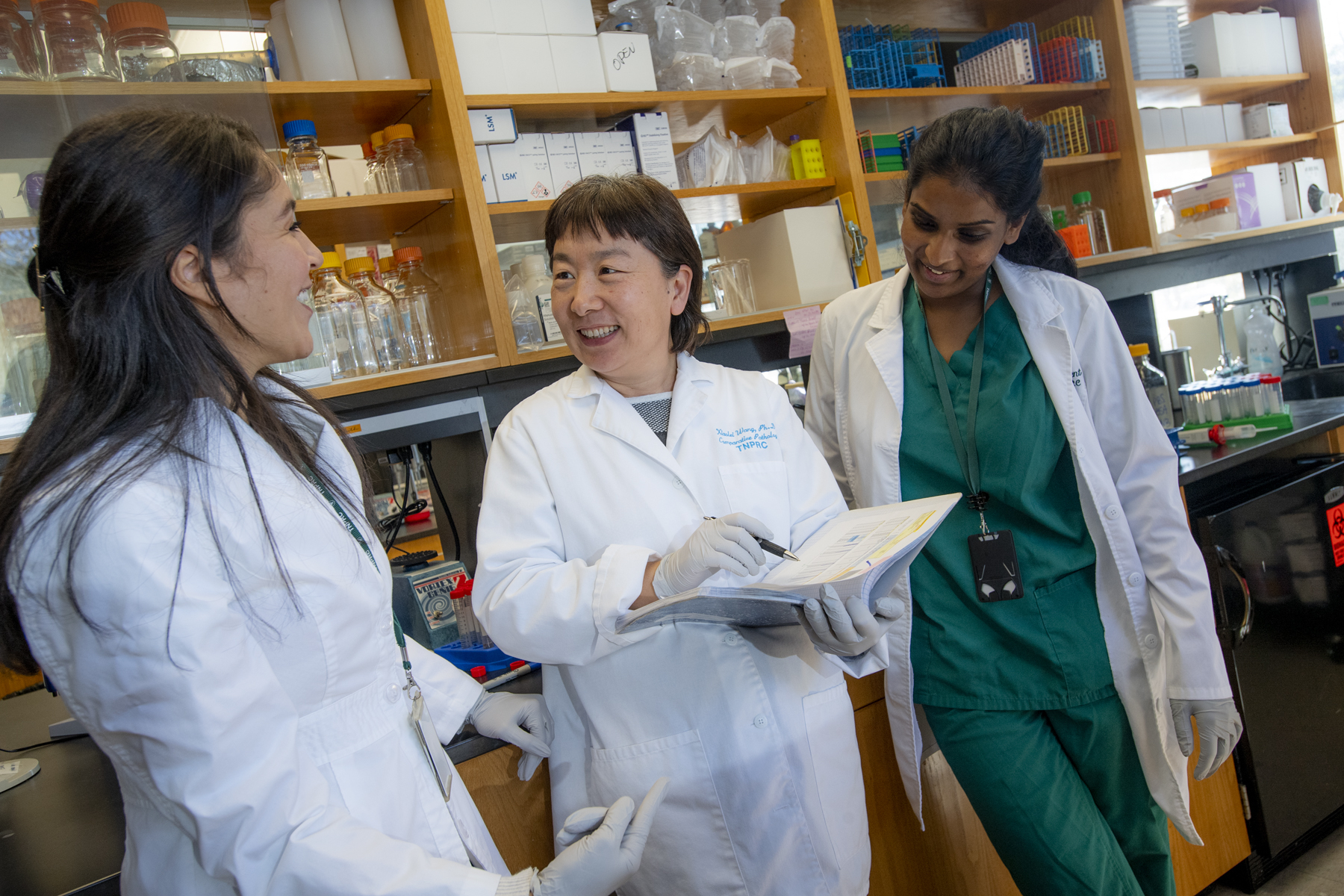Information for
Account Login
Tulane National Primate Research Center celebrates 60 years of discovery
December 6, 2024Leslie Tate
The Tulane National Primate Research Center celebrates 60 years of scientific contributions this year. Established in the fall of 1964 as the Delta Regional Primate Research Center and backed by continuous funding from the National Institutes of Health (NIH), the center has explored the causes and cures for a range of major human health challenges.
Over the decades, the Primate Center has become a leader in biomedical research, advancing the understanding, prevention and treatment of infectious diseases. As Tulane University’s largest and longest-running NIH-funded grant, the center contributes an annual economic impact of $107 million to the region.
Located in Covington, the center is part of a national network of NIH-supported facilities and collaborates closely with the School of Medicine and the Celia Scott Weatherhead School of Public Health and Tropical Medicine, forming a key partnership in infectious disease research. Since its inception, the center has played a pivotal role in understanding infectious diseases and has been especially instrumental during public health crises, from the AIDS epidemic to the COVID-19 pandemic.
In the early 1980s, as doctors began identifying a mysterious virus impacting otherwise healthy gay men, the center hosted a symposium to bring together scientists nationwide to share their earliest research findings on the virus. Using the Simian Immunodeficiency Virus (SIV) model, researchers uncovered critical insights into how HIV affects the body, contributing to the global shift of HIV from a fatal diagnosis to a manageable condition. The work done at the center has included studying viral persistence in the gut and investigating how topical hormones might prevent transmission in females.
Since 2013, the center has been one of three federally designated sites for evaluating potential HIV vaccines, with HIV/AIDS still comprising over 60% of its research portfolio. In October 2024, 41 years after hosting its first symposium on nonhuman primate models for AIDS, the center welcomed leading HIV/AIDS researchers back for this year’s gathering, joined by Dr. Robert Gallo, co-discoverer of HIV, in a full-circle moment for those involved in the earliest fight against the disease.
The center’s pioneering work extends beyond HIV/AIDS. In the 1990s, the center developed the first nonhuman primate model of Lyme disease, a significant step forward in understanding its mechanisms and providing a framework for testing new diagnostics, vaccines and treatments. Today, the center continues to lead in Lyme disease research, focusing on improved diagnostics and therapies for persistent Lyme infections that resist standard treatment. This specialized research has provided insights that shape approaches to Lyme disease detection, management and treatment.
The center is also at the forefront of emerging infectious disease research, addressing threats like COVID-19, Zika virus and other global health challenges. With its Regional Biocontainment Laboratory — one of only twelve NIH-funded facilities in the U.S. equipped to handle highly infectious agents — the center has also made vital contributions to national biodefense.
During the COVID-19 pandemic, scientists at the center swiftly developed a model to study the virus's effects on metabolism and vital organs, including the brain, heart and kidneys. Their efforts were pivotal in advancing vaccines and treatments and in establishing a nationwide data-sharing network to support research on COVID-19 and long COVID.
Since its founding, the center has been dedicated to advancing both human and animal health. As the center marks its 60th anniversary, it remains committed to conducting ethical, impactful research while prioritizing the care and well-being of the nonhuman primates essential to its work. As an integral part of Tulane’s research ecosystem and a cornerstone in the fight against infectious diseases, the center is poised to continue improving global health for years to come.

